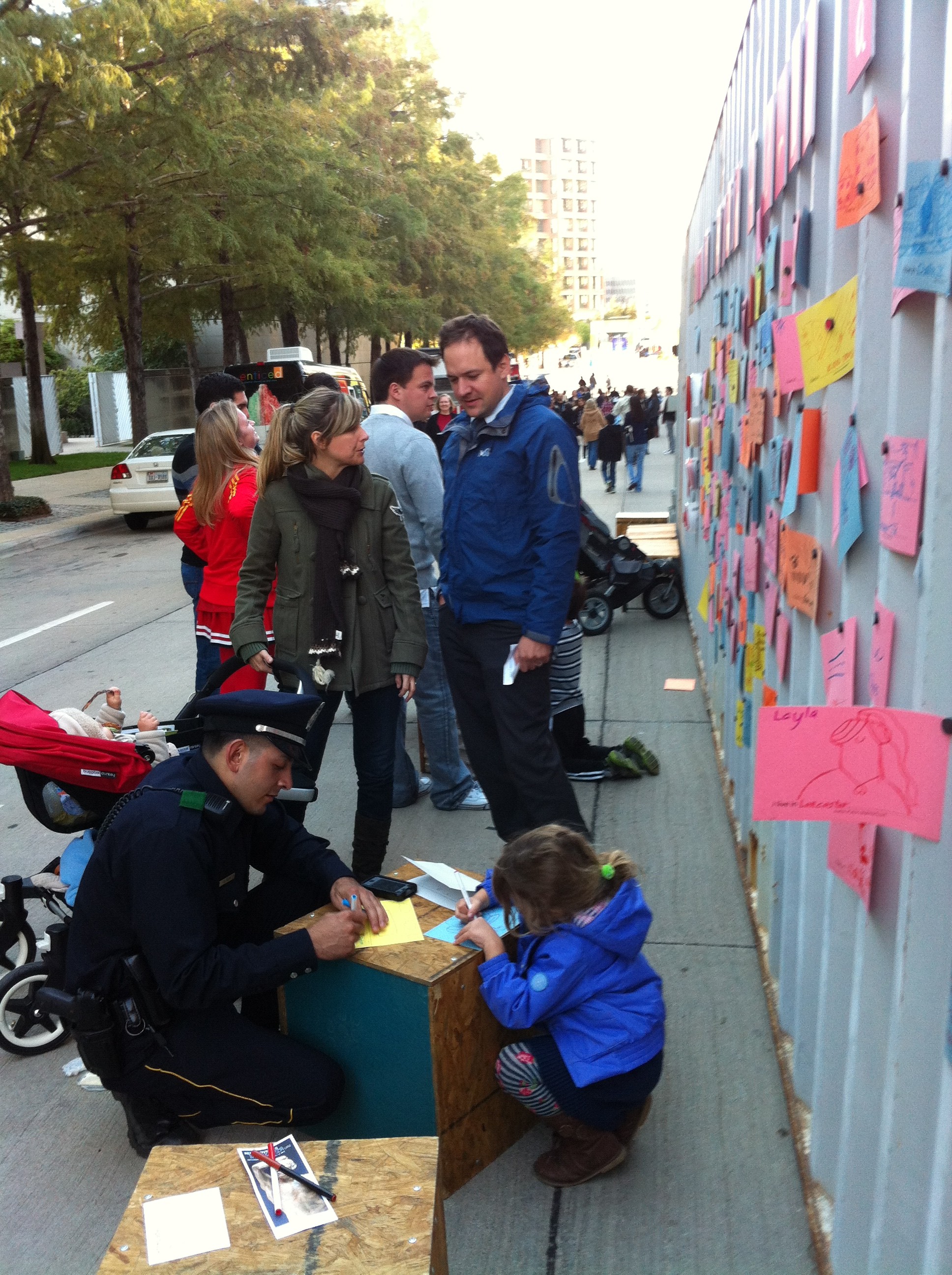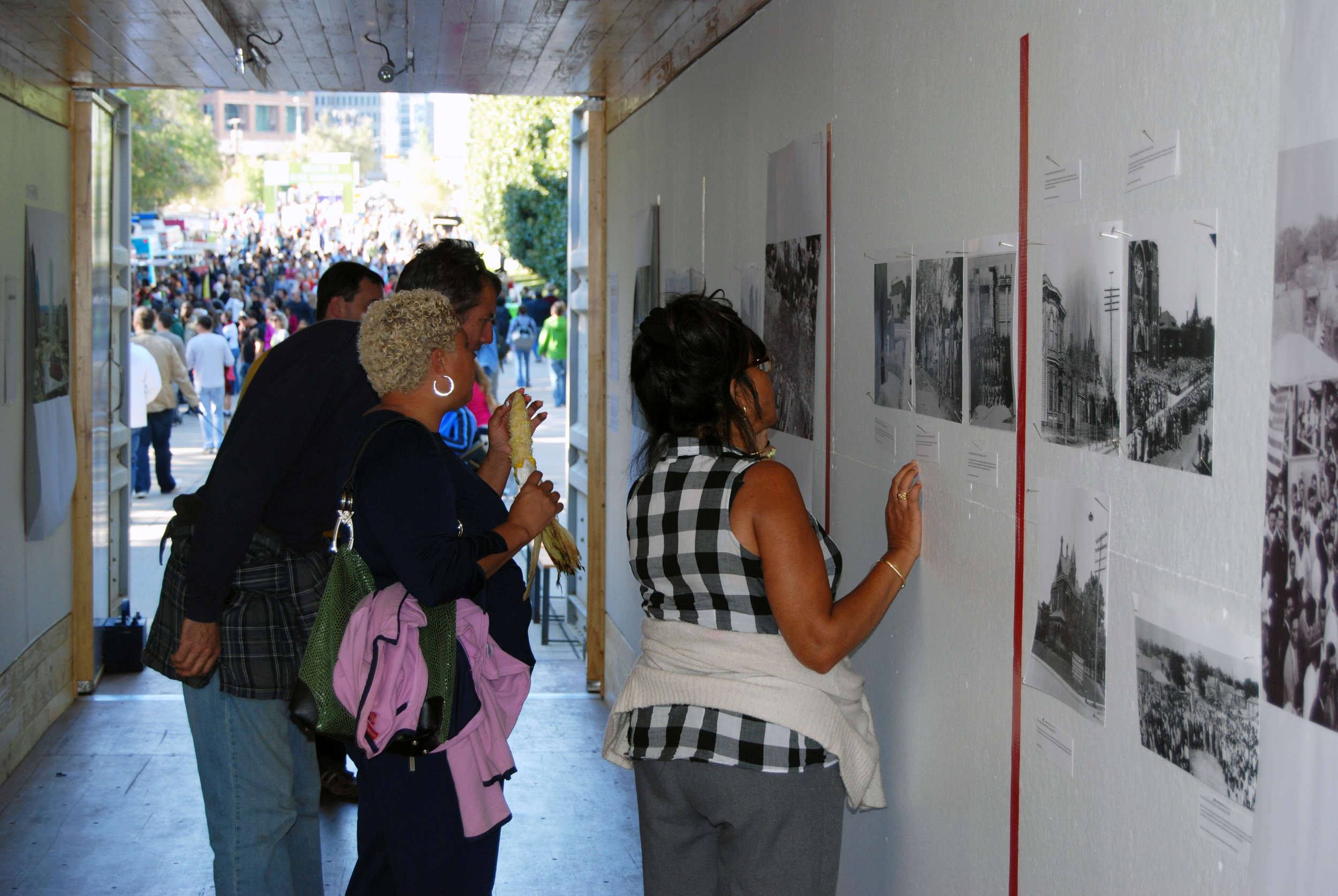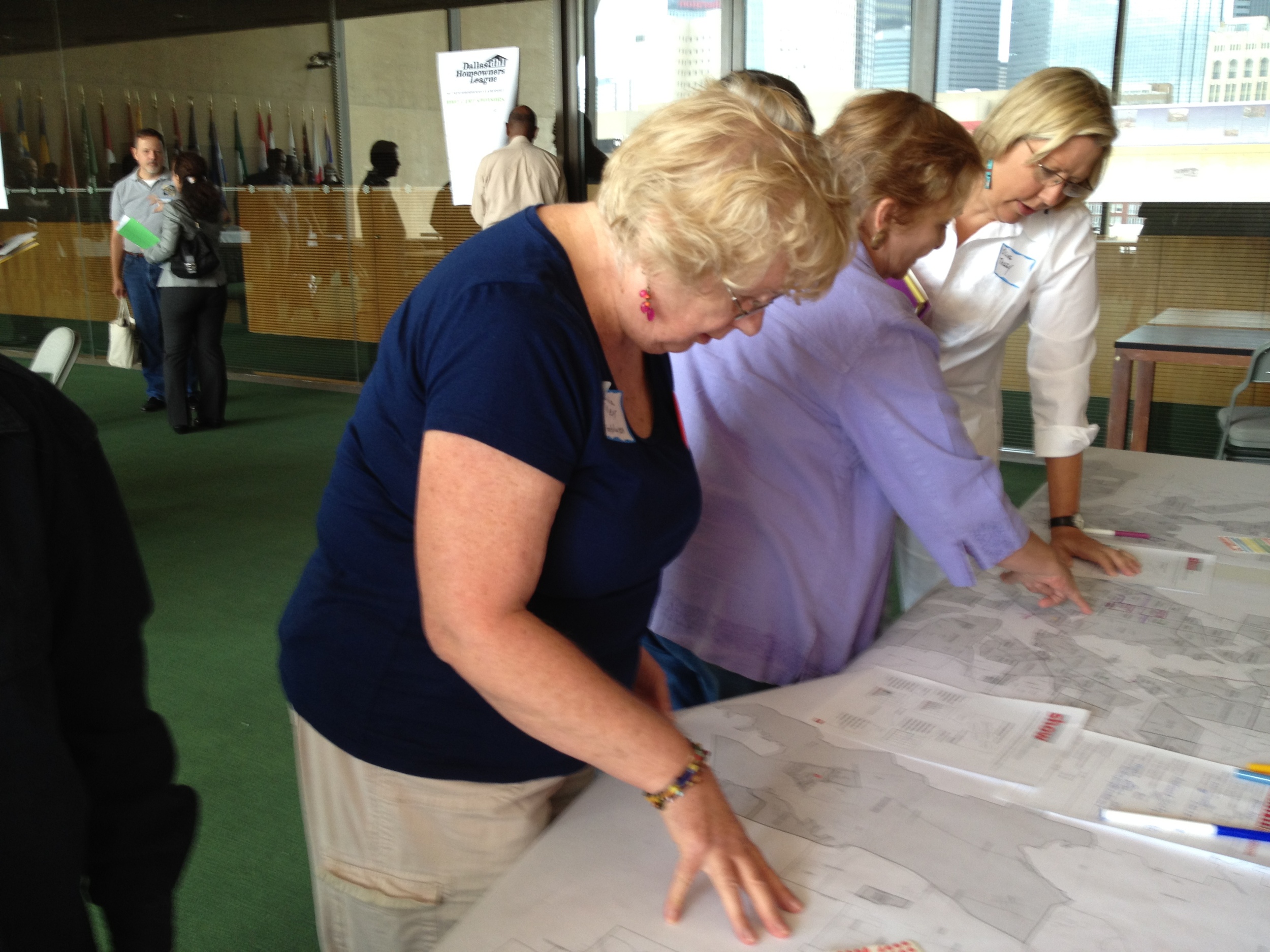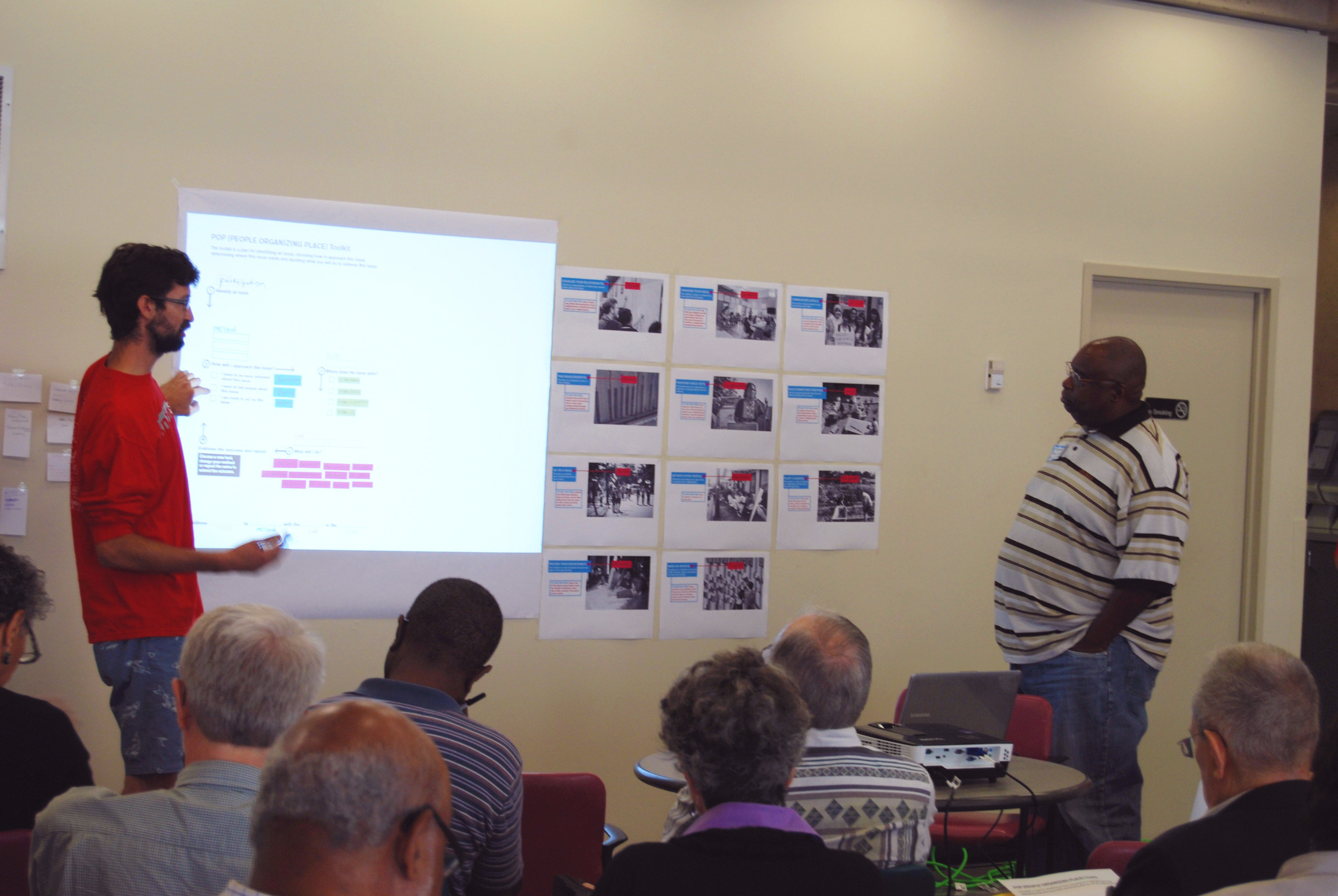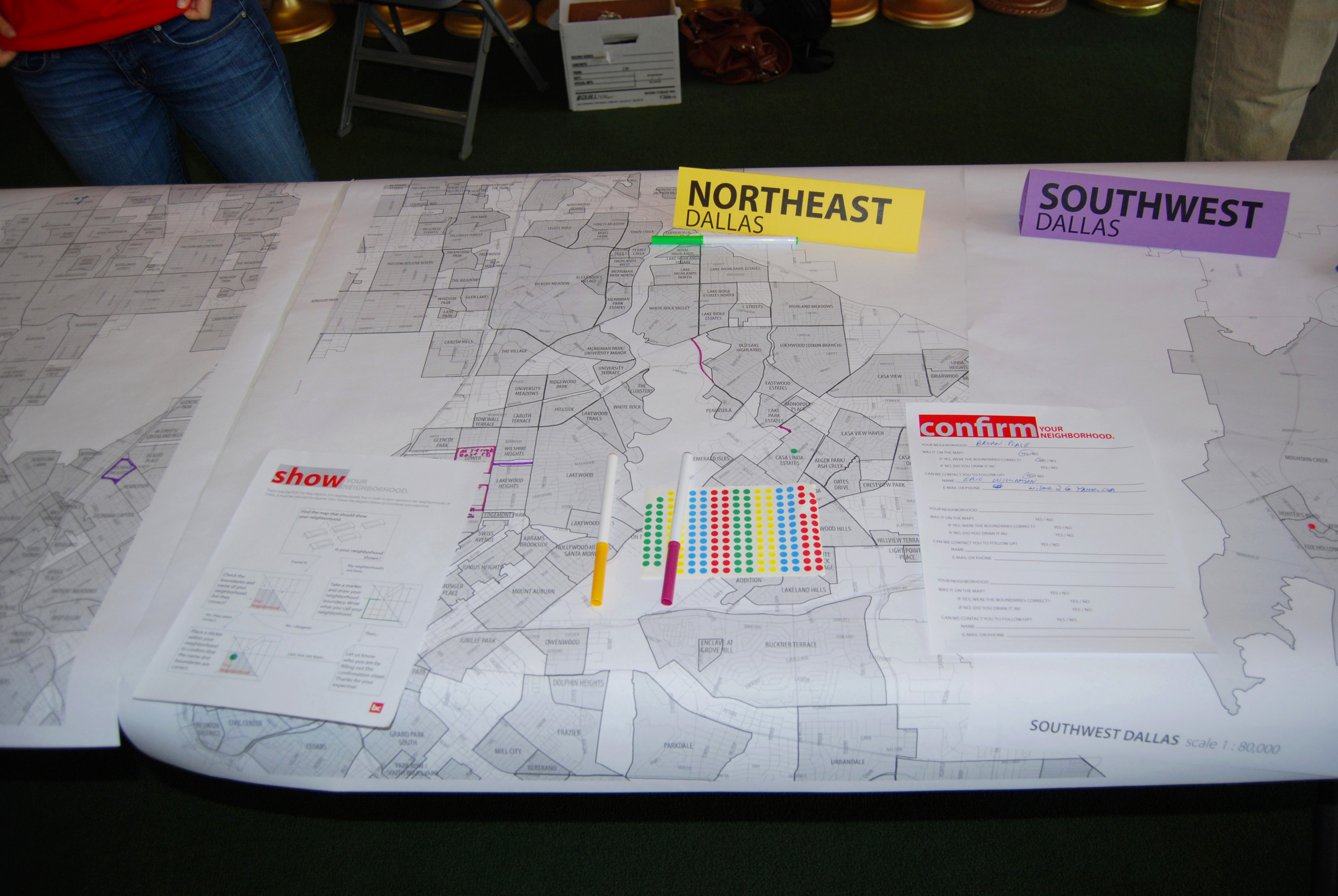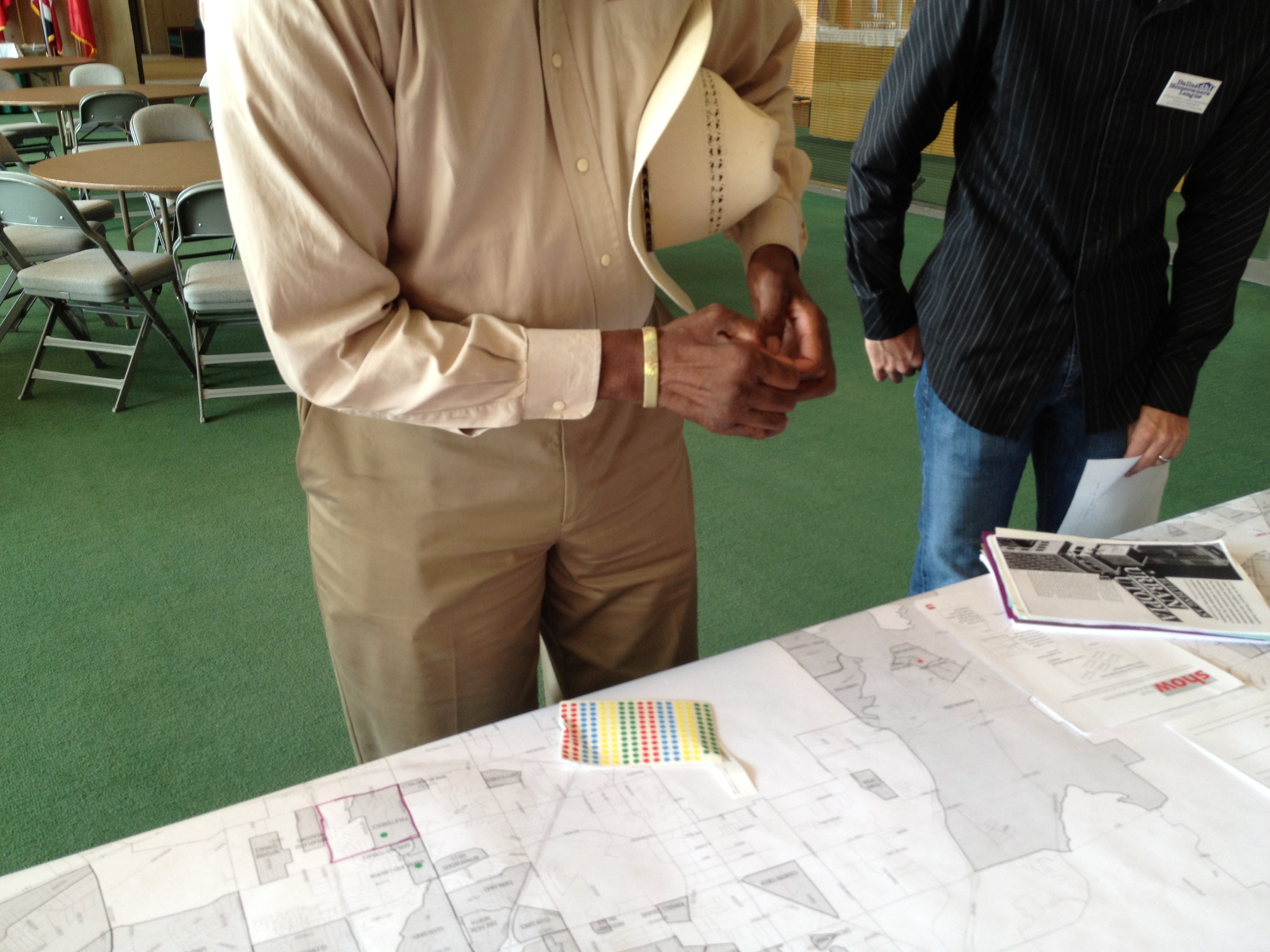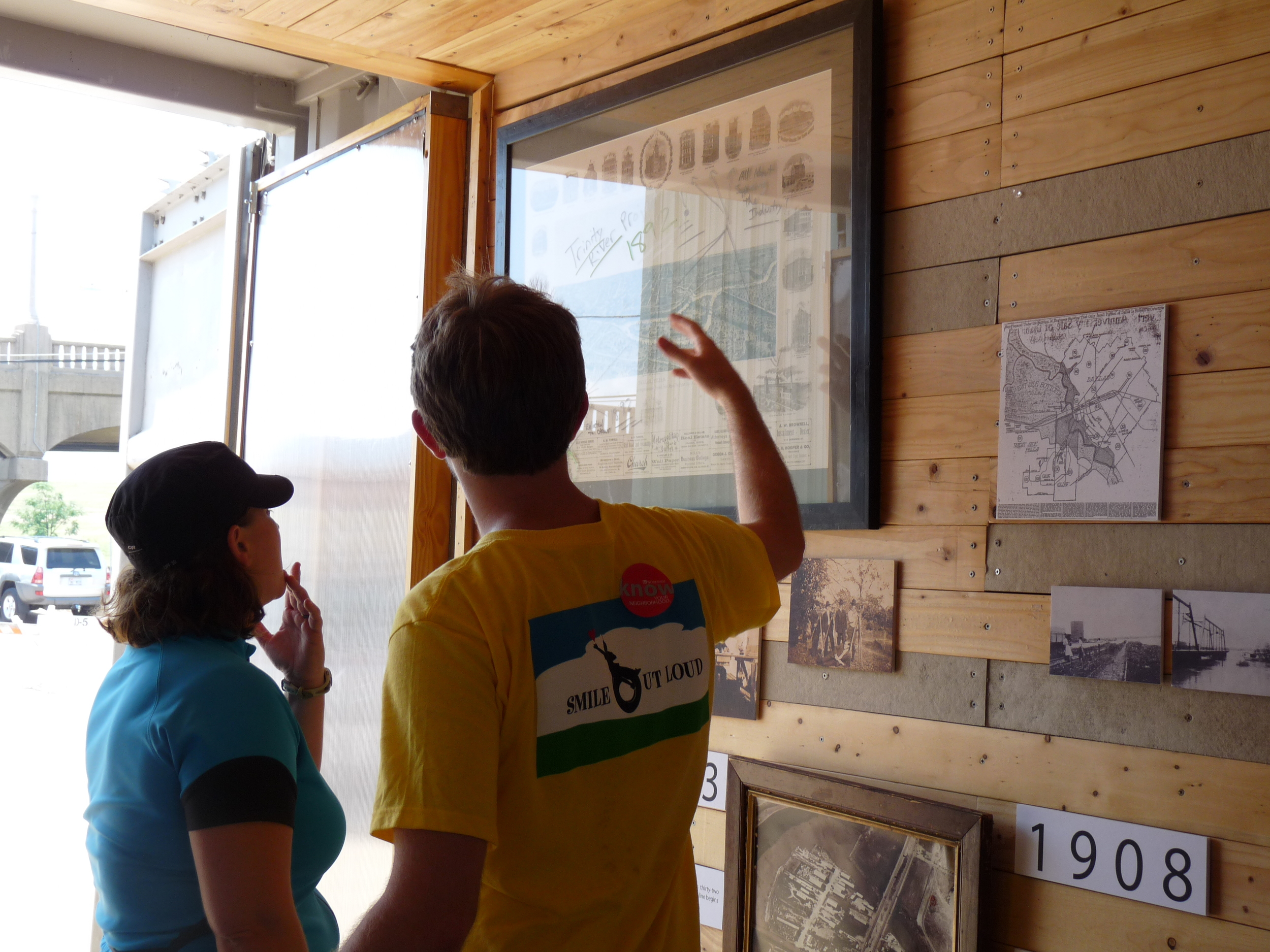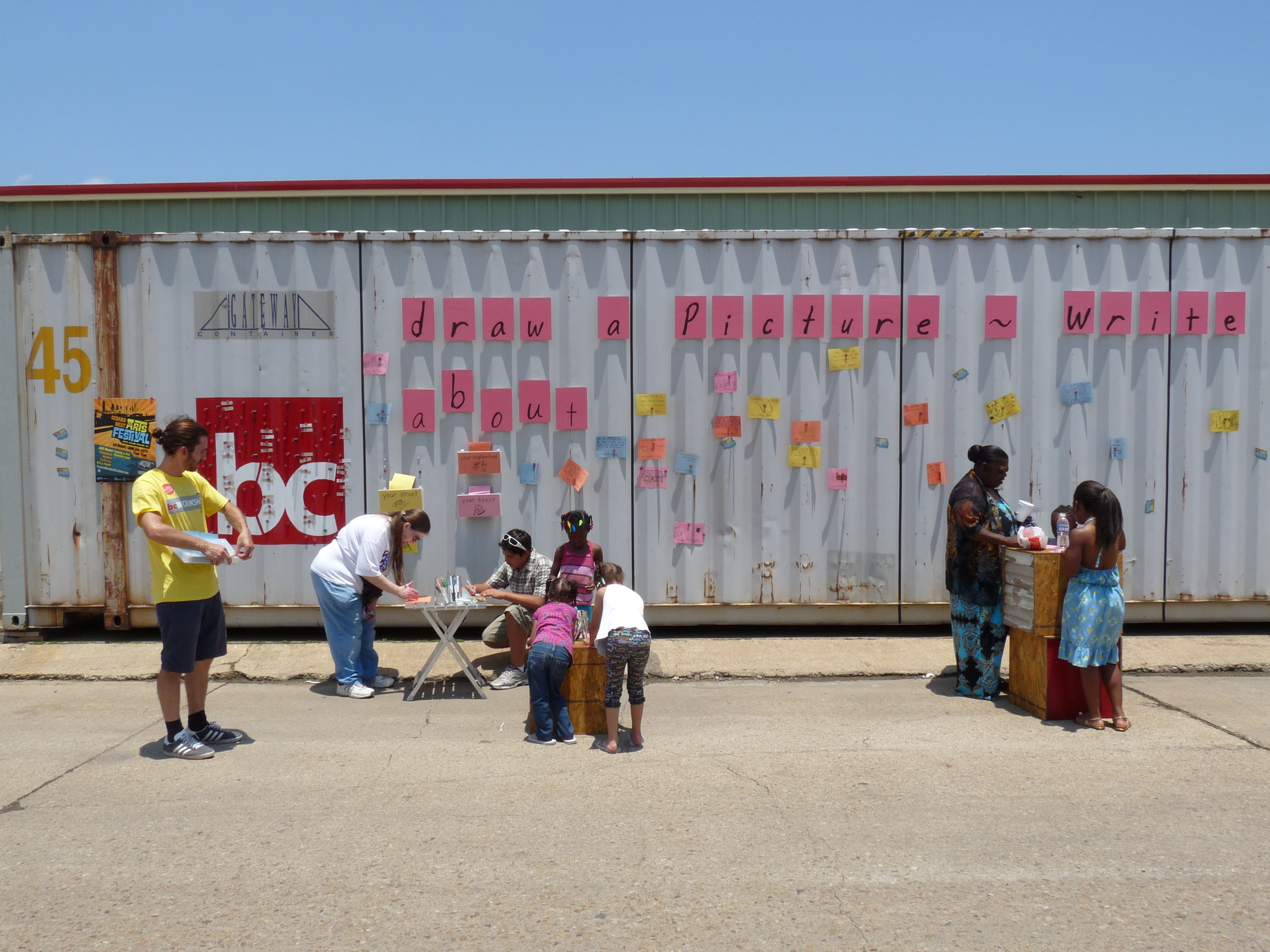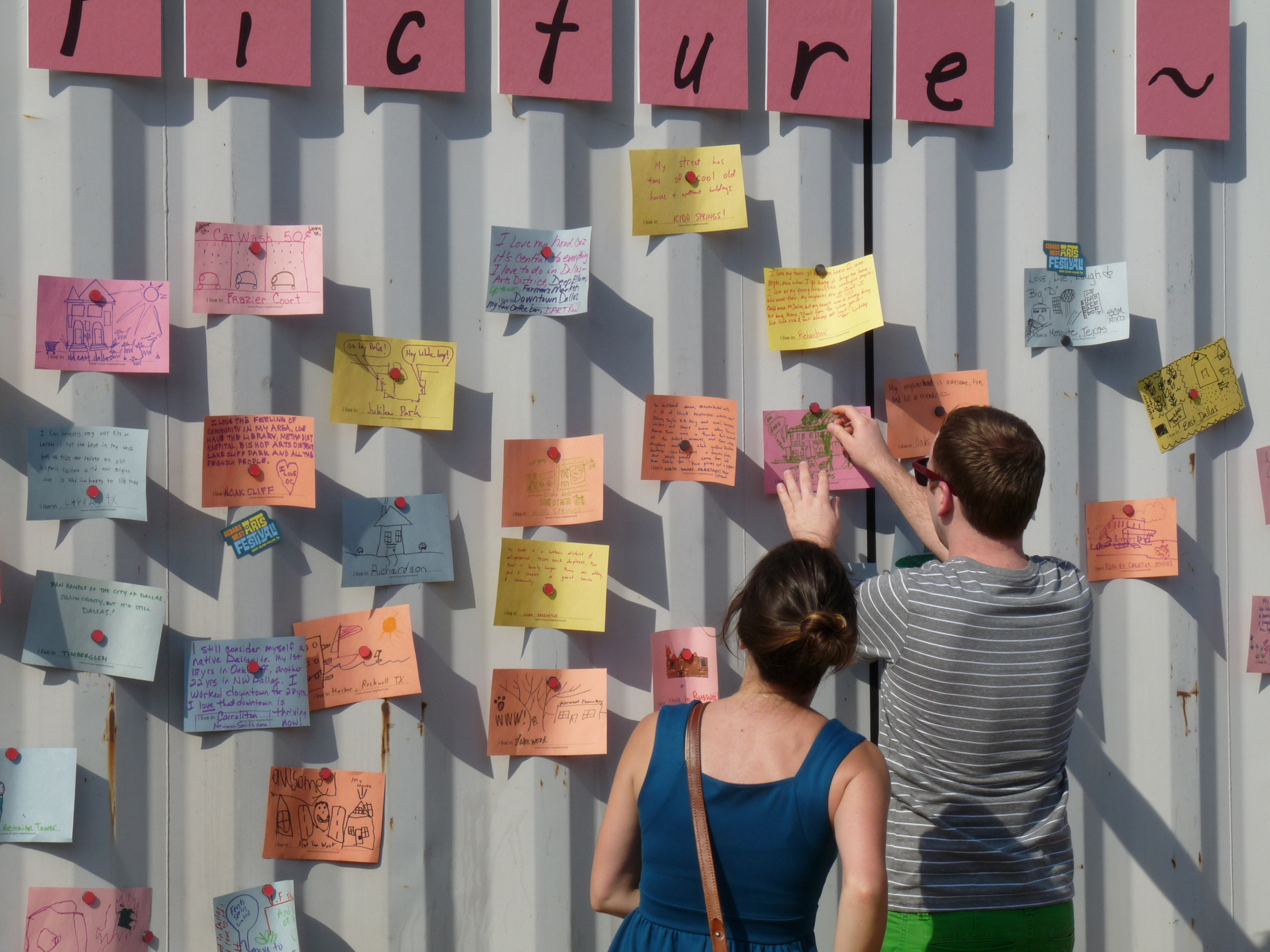Learn more about POP Dallas and Neighborhood Stories.
On October 27-28, 2012, bcWORKSHOP was a part of a monumental project for Dallas: the grand opening of Klyde Warren Park. The celebration commemorated an innovative park that decks over a portion of Woodall Rodgers Freeway, providing valuable new civic space and connecting Uptown and the Dallas Arts District.
bcWORKSHOP had a substantial presence at the park opening, engaging visitors on Harwood Street around our POP [People Organizing Place] Dallas initiative as they passed between the new park and the Arts District. The centerpiece was a Dallas Neighborhood Stories exhibit inside our 45’ retrofitted shipping container that examined the evolution of today’s Arts District from its origins as the juncture of the Freedman’s Town/North Dallas, Little Mexico, and Ross Avenue neighborhoods, and how major interventions - the construction of Central Expressway, the construction of Woodall Rodgers Freeway, and the master plan for the Arts District - affected physical and social change.
The POP City Map also made an appearance; more than 200 people marked their Dallas neighborhoods, with dozens more showing their pride in places from Irving and Lancaster to Brazil and France. Finally, hundreds of revelers shared pictures and stories about where they live on the container itself and on camera in the Story House.
The weekend affirmed how strongly people identify and connect with their neighborhoods as well as the importance of understanding the decisions and actions that have shaped our city over time. We had a great time at the opening and look forward to bringing our exhibit back to the Arts District soon!
![[bc]](http://images.squarespace-cdn.com/content/v1/5248ebd5e4b0240948a6ceff/1412268209242-TTW0GOFNZPDW9PV7QFXD/bcW_square+big.jpg?format=1000w)





